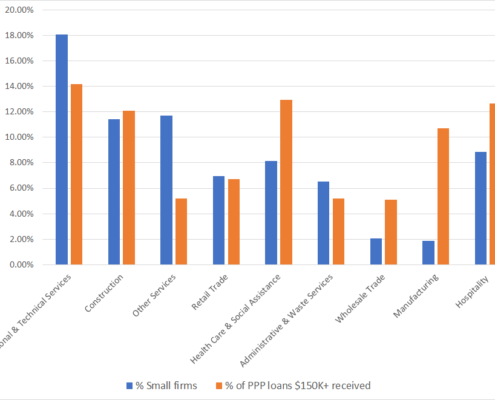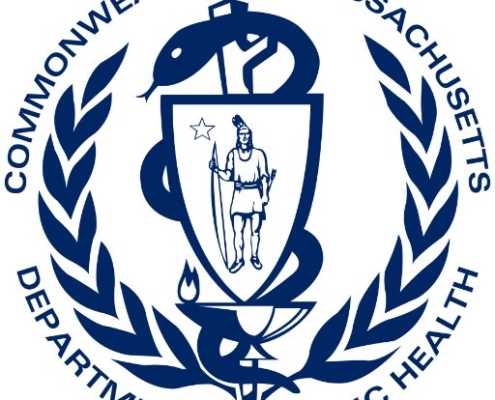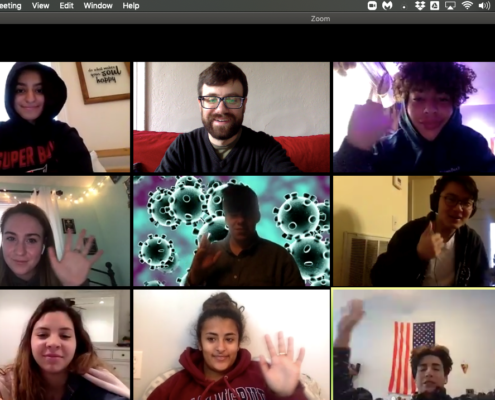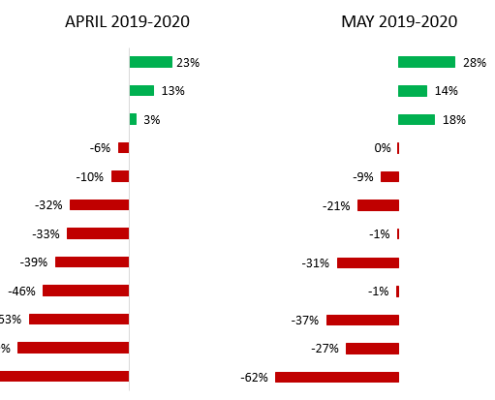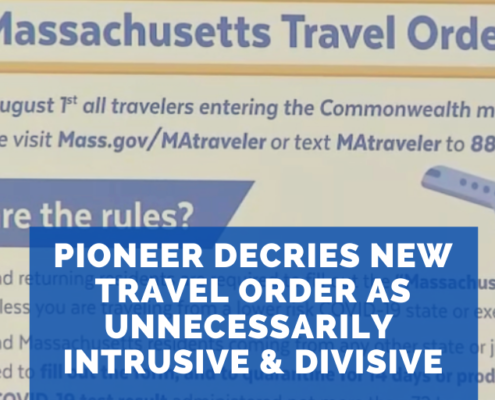Hospitality, Retail Trade, Healthcare Among ‘Most Vulnerable Industries’ in Terms of Unemployment due to COVID-19
New Pioneer Institute analysis looks at Massachusetts industries hardest hit by March unemployment claims
BOSTON – Recent data provided by the Massachusetts Executive Office of Labor and Workforce Development show that hospitality, retail trade, healthcare and social assistance, and construction are the industries that have suffered the most unemployment as a result of the coronavirus outbreak, according to the new Pioneer Institute report, A Look at the Massachusetts Industries that Are Most Vulnerable Due to COVID-19.
“The COVID-19 shutdown has obviously affected different parts of the economy differently,” says Executive Director Jim Stergios. “This is the first attempt to quantify the impacts, and this kind of work is the only way to craft solutions for our regional economies as Massachusetts turns its attention to opening up for business again.”
March saw the highest spike in unemployment claims in history, and the trend continued in the first two weeks of April.
While highlighting the four industries hardest hit by the pandemic, the Pioneer study, entitled A Look at the Massachusetts Industries that Are Most Vulnerable Due to COVID-19, shows that local economies may be impacted by these trends based on their proportion of area jobs in these ‘vulnerable’ sectors.
In addition to each municipality being affected differently due to the makeup of its local economy, the hardest-hit municipalities also fall into various geographic clusters.
For example, the ten municipalities with the highest percentage of their total jobs in the hospitality super sector, which is made up of accommodation and food services as well as arts, recreation, and entertainment, are all found in either Western Massachusetts or the Cape and Islands. These towns represent economies that are made up of anywhere from 40 to 75 percent of total jobs in Hospitality, and the dire unemployment trends in this sector do not bode well for these communities which may be reliant on this sector.
Another example is the clustering of affected economies by community sub-type, as defined by the Massachusetts Area Planning Council. Towns with the highest percentage of total jobs in construction tend to be classified as more ‘rural’ or ‘developing’ community types, and they may experience more unemployment claims because of the proportion of construction jobs in these areas. Additionally, municipalities within these community sub types may require more consideration with respect to decisions regarding re-opening the economy and essential versus non-essential businesses.
“Boston is considered a hub of healthcare and social assistance, with roughly 20 percent of jobs in Boston in 2018 in this sector,” says Rebekah Paxton, co-author of the report, with Greg Sullivan. “However, there are municipalities with nearly half of their total jobs in healthcare across the state, including Sandisfield, Melrose, and Brookline.”
Interestingly, the retail trade sector jumped in the number of unemployment claims in April, despite being down the list after the initial unemployment data was released for March.
This analysis is important to understand the variety of economic impacts that will affect each municipality in the Commonwealth. While different sectors are experiencing shutdowns, adjustments, and layoffs, the municipalities that will be affected most acutely are those that have high proportions of their local economies within a single sector, and therefore may be reliant on these sectors to emerge from the crisis.
About the Authors
Gregory Sullivan is Pioneer’s Research Director. Prior to joining Pioneer, Sullivan served two five-year terms as Inspector General of the Commonwealth of Massachusetts, and held several positions within that office previously. Sullivan was a 17-year member of the Massachusetts House of Representatives, serving on the committees of Ways and Means, Human Services, and Post-Audit and Oversight. Greg holds a bachelor’s degree from Harvard College, a master’s degree in public administration from The Kennedy School of Public Administration at Harvard, and a master’s degree from the Sloan School at M.I.T., with a concentration in finance.
Rebekah Paxton is a Research Analyst at Pioneer Institute. She has worked on various research projects under PioneerPublic and PioneerOpportunity, in areas of state finance, public policy, and labor relations. Currently she works on research using Pioneer’s employment database and the MassEconomix.org project. She earned a Master’s degree in Political Science and a Bachelor’s degree in Political Science and Economics, from Boston University, where she graduated summa cum laude.
About Pioneer
Pioneer Institute is an independent, non-partisan, privately funded research organization that seeks to improve the quality of life in Massachusetts through civic discourse and intellectually rigorous, data-driven public policy solutions based on free market principles, individual liberty and responsibility, and the ideal of effective, limited and accountable government.
Get Our COVID-19 News, Tips & Resources!
Recent Posts


